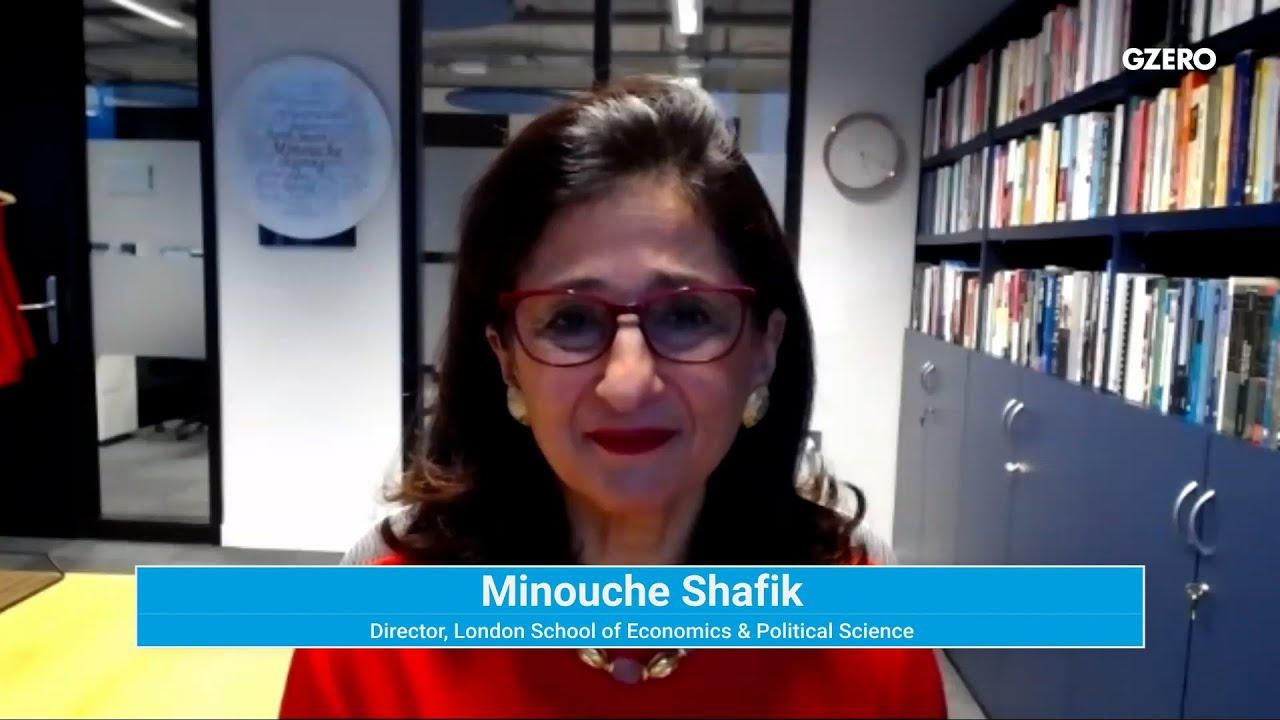Science & Tech
Minouche Shafik: Keeping talented women working is good for the economy

Minouche Shafik: Keeping Talented Women Working is Good for the Economy | GZERO Media

More women are now going to college than men, but much of that talent later goes to waste. Why? For London School of Economics Director Minouche Shafik, the problem is that we don't have systems in place to retain talented women in the workforce in crisis situations like the pandemic, when so many women had to quit their jobs and stay home to take care of their kids. "The talent of all of those women is a huge potential economic gain to our societies," she explains, so we need to find a way to better match them to (remote) jobs that suit their skills. "This is not just about inequality story; this is really an economic efficiency story as well."
She spoke during "Measuring what matters: How women are critical to pandemic recovery," a livestream conversation on October 28, 2021, hosted by GZERO Media in partnership with the Bill & Melinda Gates Foundation.
1,170: The number of high-rise buildings in Kyiv that were left without heating following a barrage of Russian attacks last night on Ukraine’s capital and its energy facilities, per Kyiv Mayor Vitali Klitschko.
U.S. President Donald Trump and Japanese Prime Minister Sanae Takaichi hold up signed documents regarding securing the supply of critical minerals and rare earths, at a bilateral meeting at Akasaka Palace in Tokyo, Japan, October 28, 2025.
Representatives from the European Union, United Kingdom, Japan, and others will meet in Washington this week to discuss a strategic alliance on critical minerals.
80,000: The number of people estimated to be in the streets of Czechia on Sunday to show their support for President Petr Pavel after he blocked the nomination of an environmental minister who performed the Nazi salute and posted Nazi memorabilia.
The US has started handing $1,000 to the bank accounts of newborn babies. But can policies like this one help boost sagging birthrates in advanced democracies?